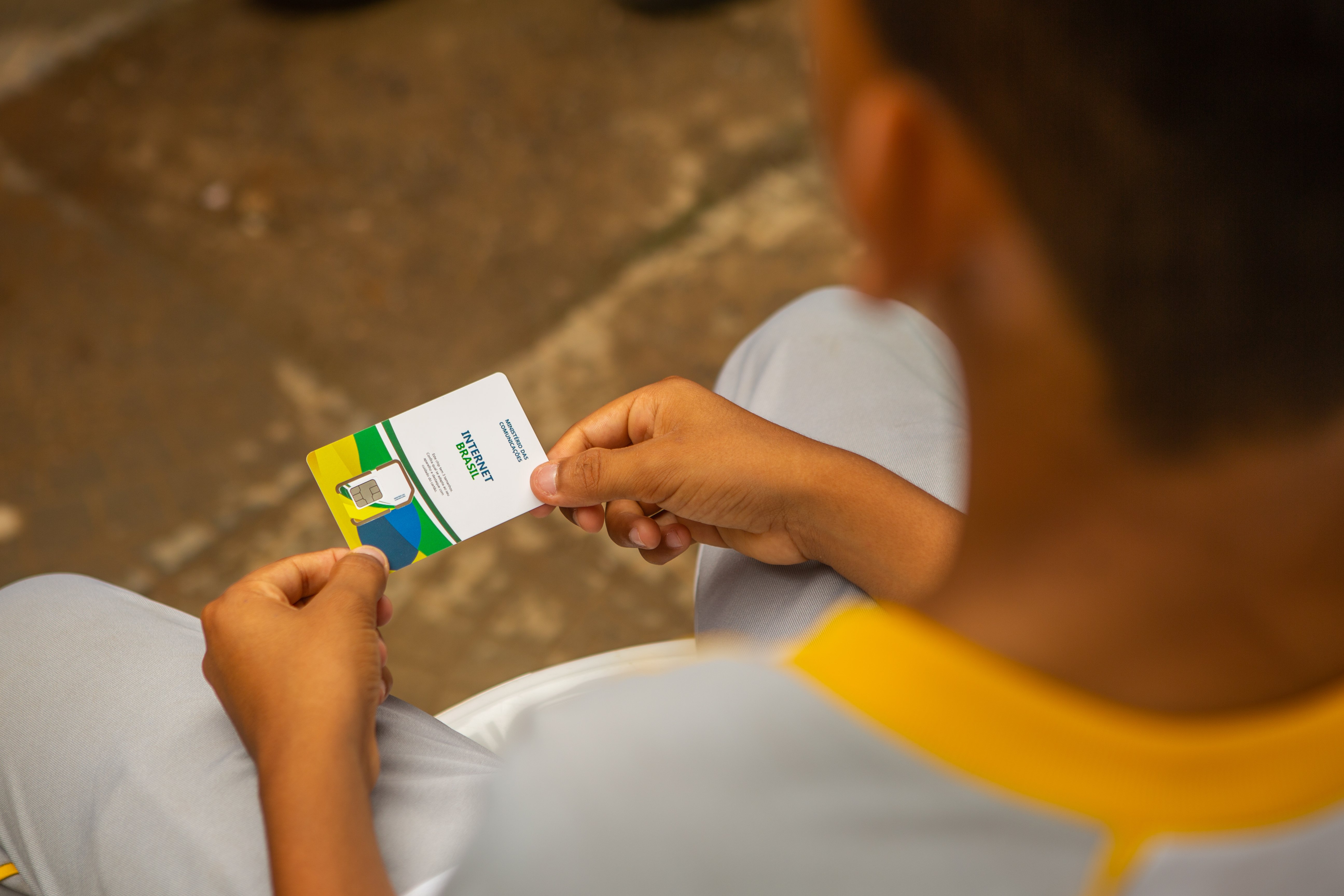Myths and truths of the Internet Brasil Program
The Internet Brasil Program has distributed 6,250 chips in 15 schools in six cities in the Northeast Region, which participate in the Proof of Concept. At this stage, up to 10,000 students from the public school system will benefit. As the program progresses, doubts may arise regarding its functioning. Below are some frequently asked questions about the program.
Does anyone who receive the Internet Brasil chip lose Bolsa Família?
No, not at all, as they are different and independent benefits. The Bolsa Família beneficiary family will normally continue to receive its benefit after the chip is delivered to one or more family members enrolled in the Internet Brasil program, for the duration of the benefit. In order to participate in Internet Brasil, it is necessary to provide a NIS number. Only CadÚnico beneficiaries who are already using a chip from another social, municipal or state program, for example, and who do not meet the objective criteria defined by the Education departments are prevented from receiving the chip.
Can the government monitor the beneficiary through the used chip?
The program uses the innovative e-SIM Card technology, known as “chip neutral”, allowing the beneficiary to change operator without having to change the physical chip. The mechanism thus aims to ensure greater quality and stability of the Internet service. The remote operation by RNP aims to comply with all the requirements of the General Data Protection Law (LGPD). The privacy of online activities by students and their families is assured, as explained by Suely Campos, RNP's Solutions coordinator.
“To protect the privacy of students and their families, monitoring of each chip is not carried out individually. The data traffic analysis takes place anonymously. In this way, RNP, in the operationalization and monitoring of the program, adopts good practices and market standards for information security and protection of personal data, aiming at compliance with the General Data Protection Law (LGPD)”, says the manager.
Is the chip for studying only?
The Internet Brasil Program aims to provide free mobile broadband Internet to students from public schools in the basic education network, enrolled in the Single Registry for Social Programs of the Federal Government (CadÚnico), contributing to school retention and favoring the implementation of other education formats. Thus, without a doubt, the pedagogical use is one of the main objectives of the program – but not the only one.
Fostered by the Ministry of Communications (MCom), with support from the Ministry of Education (MEC) and executed by RNP (National Teaching and Research Network), Internet Brasil also intends to democratize access to the Internet, since the students' families also take advantage of the connection. Digital inclusion, in its broadest sense, is therefore at the heart of the program.
“Children can have access to content both inside and outside the school, even in their leisure time. They can have access to literature, books, music, materials not only of a pedagogical nature, but of a social nature. The student can start to have a more active participation in society”, explains Francisco Hernandes, coordinator of educational technology in Juazeiro-BA.
Yandria Pereira, director of the Dom Avelar Brandão Vilela Municipal School, in Juazeiro (BA), reinforces that the program will promote the integral development of students. “I will summarize the main impact of Internet Brasil in one expression: transformation of lives”. Yandria raises yet another aspect of the promoted social inclusion: communication with the students' parents. “Many families sometimes have a cell phone but no access to the Internet, so this certainly helps in this whole school-family relationship”, she concludes.

